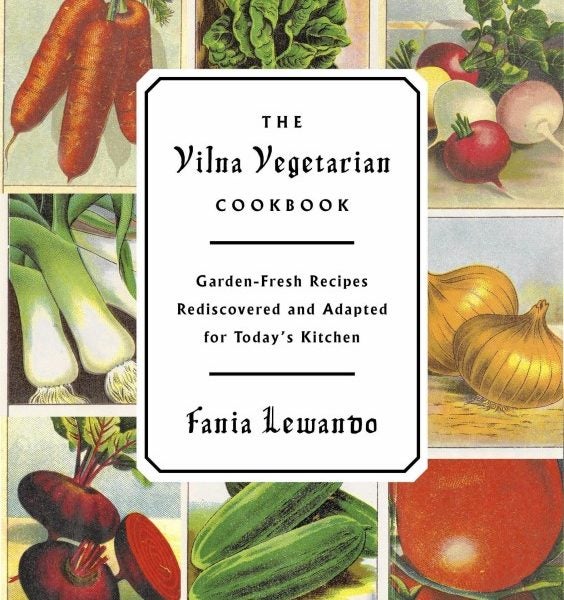
“It has long been established by the highest medical authorities that food made from fruits and vegetables is far healthier and more suitable for the human organism than food made from meat,” wrote Fania Lewando in 1938. With that Austen-like pronouncement and the publication of Lewando’s cookbook, Vegetarish-Dietisher Kokhbukh, a distinctly Jewish food movement was documented — then nearly lost.
The cookbook, which resurfaced after the war, just arrived in English translation, in the form of the gorgeously illustrated Vilna Vegetarian Cookbook. The vegetarianism of Lewando, who was also a restaurateur and nutritional educator in Vilna’s Jewish heyday, is not the meat-free eating of 1970s California — for one thing, there’s more butter (a good source of Vitamin A). Lewando’s cooking is also a proud product of the East European cuisine that surrounds her: she features four kinds of borscht, and cabbage appears even in the dessert section. Translator Eve Jochnowitz cautions the home cook that certain recipes — such as eggs preserved in whitewash — might not suit a 21st-century palate.
But don’t just brush this kokhbukh off as a novelty item: Lewando proves herself a visionary with a chapter on “vitamin drinks and juices.” As one of her restaurant guests once put it, in a rhyming couplet: “If there were more kitchens like Lewando’s / Eating meat would be a shande.”
Though Lewando and her husband seem to have perished while fleeing the Nazis just three years after the publication of this book, through it, her legacy lives on.
JTA has documented Jewish history in real-time for over a century. Keep our journalism strong by joining us in supporting independent, award-winning reporting.






